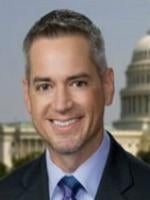Judge Jed Rakoff’s November 2011 ruling rejecting Citigroup’s settlement with the Securities and Exchange Commission sent tremors through the securities compliance world by challenging the seemingly well-accepted practice of permitting corporations to settle civil claims with the agency without admitting wrongdoing. But in its order granting a stay of the Citigroup proceedings pending appeal, the U.S. Court of Appeals for the Second Circuit has raised significant questions about Judge Rakoff’s previous ruling.
As we reported earlier, in November 2011, Judge Rakoff rejected the SEC’s proposed $285 million settlement with Citigroup on the ground that it was not fair, adequate, reasonable or in the public interest – primarily because it followed the common practice of permitting Citigroup to settle the case without admitting the allegations against it. The SEC appealed the ruling and sought a writ of mandamus, seeking to set aside the order altogether. Citigroup joined in the SEC’s motion.
On March 15, 2012, the Second Circuit granted the stay. In doing so, the court focused on three factors. First, the court faulted Judge Rakoff for failing to give sufficient weight to the SEC, as an executive administrative agency, to make discretionary decisions of governmental policy in the public interest. Second, in addressing Judge Rakoff’s stated concern that the settlement was not fair to Citigroup (because it imposed substantial relief without any proof of the underlying allegations), the court noted that it was unnecessary for the courts to protect a private, sophisticated, well-counseled litigant like Citibank from entering into a voluntary settlement in which it gives up things of value without admitting liability. Finally, the court noted that a rule that would not permit settlements without proof (or admission) of liability would be tantamount to a rule barring parties from compromising, and observed that there was no precedent to support the existence of such a rule.
The appellate court noted that both parties were united in seeking the stay and in opposing the district court’s order, with the result that the panel did not have the benefit of adversarial briefing. For that reason, the Court stated that it would appoint counsel to argue in support of the district court’s position.
Given the enormous resources that would be expended if the SEC’s case against Citigroup were to go forward without the settlement, and given that Judge Rakoff’s ruling would invalidate a common practice in securities regulatory litigation, it is not surprising that the Second Circuit was willing to stay the trial court proceedings until it has a full opportunity to consider this case. The unsettled status of the issues presented in the Citigroup appeal will obviously pose significant challenges to parties seeking to settle SEC litigation in the near term. How the Second Circuit resolves the matter could have a significant effect on the SEC’s enforcement practice during a period in which it claims to be ramping up its efforts in this arena



 i
i


